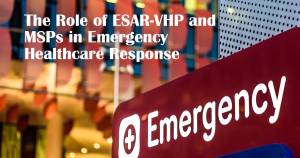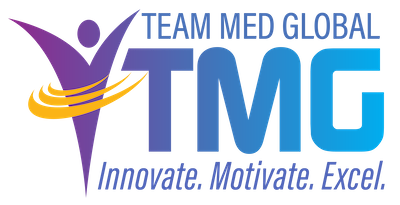 In the wake of emergencies, the U.S. healthcare system’s resilience is put to the test, necessitating not only a robust infrastructure but also a ready pool of qualified professionals to respond to the crisis. The Emergency System for Advance Registration of Volunteer Health Professionals (ESAR-VHP) is a national network of state-based systems, which register, verify, and credential healthcare practitioners before disasters strike. Two examples are Massachusetts’ MA Responds and Missouri’s Show-Me Response. (You can find links to other states’ registration pages at the Administration for Strategic Preparedness and Response website.) The ESAR-VHP is intended to help ensure a swift, coordinated, and effective response when the need arises.
In the wake of emergencies, the U.S. healthcare system’s resilience is put to the test, necessitating not only a robust infrastructure but also a ready pool of qualified professionals to respond to the crisis. The Emergency System for Advance Registration of Volunteer Health Professionals (ESAR-VHP) is a national network of state-based systems, which register, verify, and credential healthcare practitioners before disasters strike. Two examples are Massachusetts’ MA Responds and Missouri’s Show-Me Response. (You can find links to other states’ registration pages at the Administration for Strategic Preparedness and Response website.) The ESAR-VHP is intended to help ensure a swift, coordinated, and effective response when the need arises.
Established in response to the lessons learned from past emergencies, the ESAR-VHP facilitates a streamlined mobilization of volunteer health professionals, enabling them to provide critical services during disasters. By pre-verifying volunteers’ credentials, licenses, accreditations, and hospital privileges, the ESAR-VHP ensures that healthcare facilities can count on capable and legally authorized practitioners in times of need.
Challenges & Opportunities
As Medical Services Professionals (MSPs) who are tasked with credentialing, privileging, and managing medical staff affairs, the ESAR-VHP offers a unique set of challenges and opportunities. When an ESAR-VHP volunteer arrives at a hospital during an emergency, the process from an administrative standpoint unfolds as follows:
Identification and Verification: The first step involves confirming the volunteer’s identity and their registration with the ESAR-VHP. This process is expedited due to the pre-verification of their professional credentials by the ESAR-VHP, ensuring that only qualified individuals are deployed.
Orientation and Integration: Following verification, volunteers undergo an orientation program tailored to acquaint them with the hospital’s emergency protocols, safety measures, and the specific requirements of the ongoing response. This step is essential to align the volunteers with the hospital’s operational standards and ensure they can contribute effectively.
Assignment of Duties: Based on the current needs and the volunteers’ specific skills and qualifications, hospital administrators and clinical leaders assign appropriate roles and responsibilities to the volunteers. This strategic alignment maximizes the impact of their contribution to the emergency response efforts.
Supervision and Evaluation: Throughout their deployment, volunteers work under the supervision of the hospital’s existing staff. This oversight ensures quality of care and allows for real-time feedback and adjustment of roles as the situation evolves.
Documentation and Compliance: MSPs ensure that all activities involving volunteers are documented in accordance with legal, regulatory, and hospital requirements. This documentation is vital for compliance, accountability, and potential reimbursement processes.
Support and Well-Being: Recognizing the intense demands placed on volunteers during emergencies, hospitals provide necessary support services, including mental health resources, to maintain their well-being and effectiveness.
The integration of ESAR-VHP volunteers into hospital operations during emergencies exemplifies the synergy between preparedness and professional dedication. MSPs, with our expertise in credentialing and administrative management, are at the forefront of this process, ensuring that the addition of volunteer health professionals enhances the hospital’s capacity to respond to crises without compromising the quality of care.
This collaboration between ESAR-VHP volunteers and healthcare facilities highlights a model of emergency preparedness that leverages the strengths of the healthcare community. It underscores the importance of pre-disaster planning and the value of a ready, credentialed volunteer workforce in bolstering the country’s response to emergencies.
As healthcare continues to evolve, the roles of ESAR-VHP and MSPs in emergency preparedness and response will undoubtedly grow in significance. Their combined efforts not only enhance the immediate response to disasters but also contribute to the long-term resilience and effectiveness of the healthcare system, ensuring that communities can recover more swiftly and robustly from crises.
